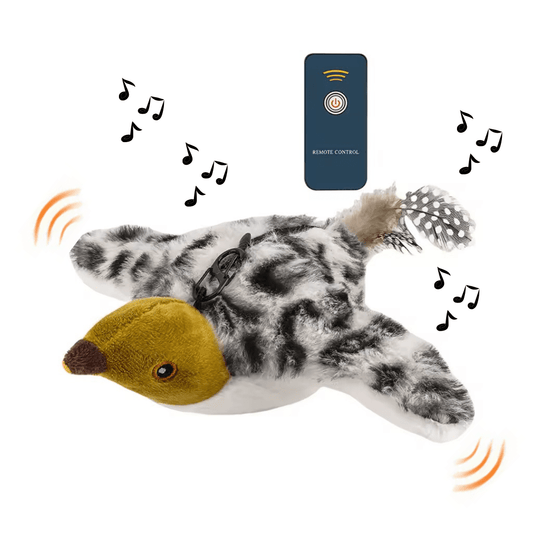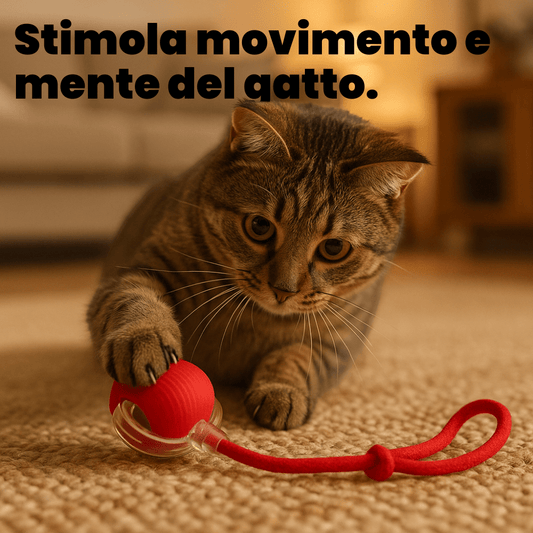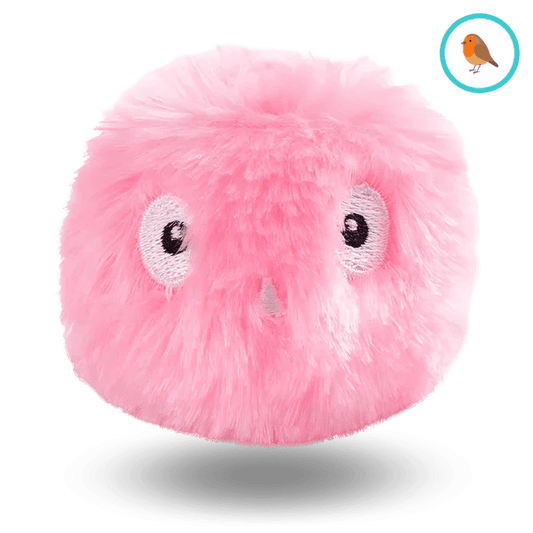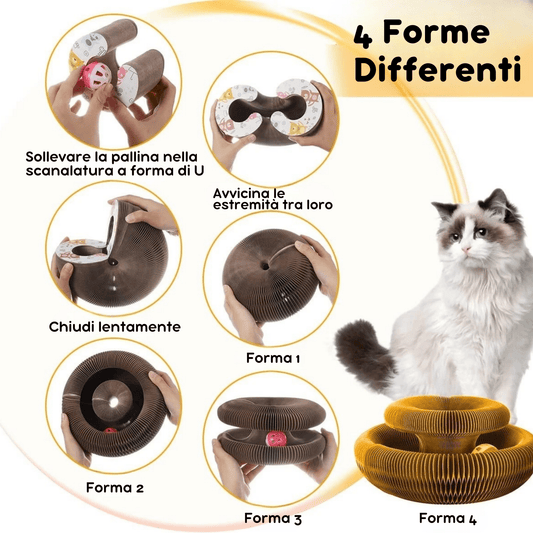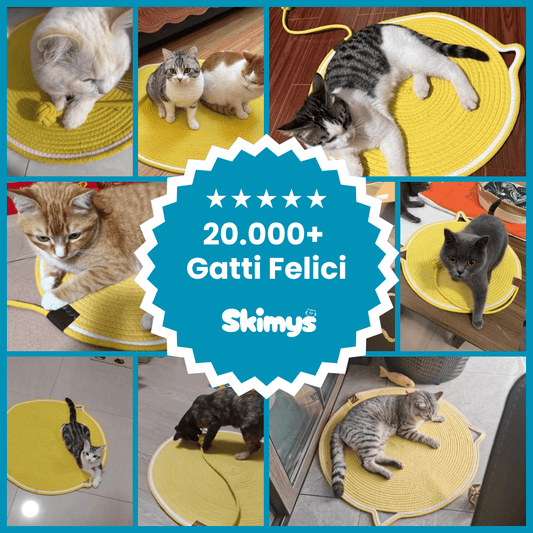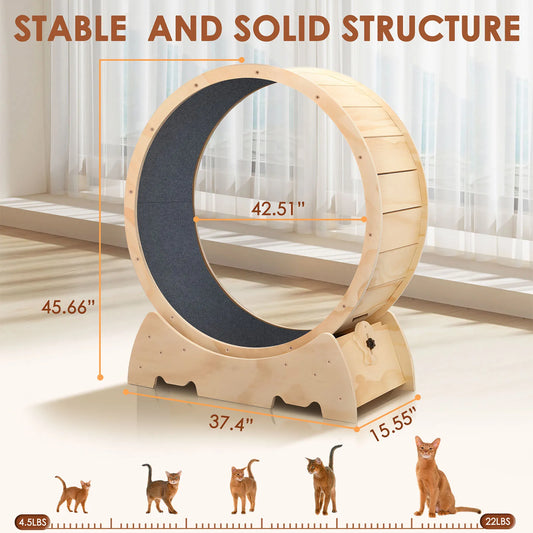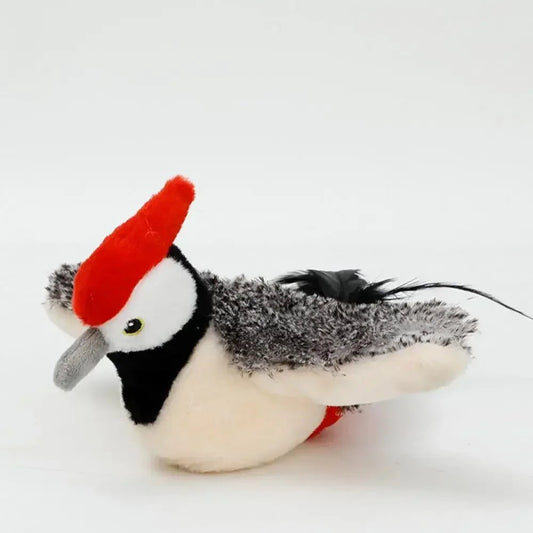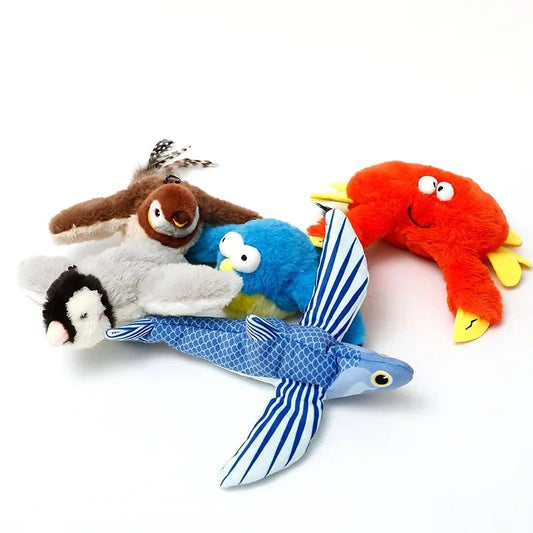Table of Contents
- The Instinctual Hunter: Sharing the Spoils
- A Deep Display of Affection and Trust
- Seeking Interaction and Initiating Play
- Boredom Busters and Mental Stimulation
- Nurturing Instincts: The Surrogate "Kitten" or "Prey"
- Comfort and Stress Relief
- Territorial Marking and Inclusion
- The Midnight Connection: Why At Night?
- How to Respond to Your Cat's Midnight Gifts
- FAQ: Why Does My Cat Bring Me Her Toys At Night?
It's 3 AM. The house is quiet, you're deep in slumber, and suddenly—thud. A small, furry object lands on your bed, often followed by a proud, insistent meow. You groggily open an eye to find your beloved feline companion staring expectantly, having just delivered their favorite squeaky mouse or crinkly ball. Sound familiar? This quirky, often late-night ritual leaves many cat parents wondering: why does my cat bring me her toys at night?
At Skimys, we understand that life with cats is full of these delightful, sometimes puzzling, moments. Our mission is to make life with pets easier, cleaner, and way more fun, and that includes helping you understand the wonderful quirks of your feline friends. This midnight delivery service isn't just a random act; it's a complex behavior rooted deeply in your cat's instincts, emotions, and their unique bond with you. In this post, we’ll delve into the fascinating world of feline psychology to uncover the many reasons behind this endearing habit. By the time you're done, you'll have a much clearer picture of what your nocturnal hunter is trying to tell you, and you'll be better equipped to provide the playful, high-quality enrichment they crave. Ready to treat your cat to something new? Explore our Cat Toys Collection and discover playtime favorites.
The Instinctual Hunter: Sharing the Spoils
One of the most fundamental reasons your cat brings you toys is tied to their deeply ingrained predatory instincts. Despite generations of domestication, our cats retain the sharp hunting prowess of their wild ancestors. For them, a toy isn't just a toy; it's "prey." When they successfully "capture" it, whether after a thrilling chase or a stealthy pounce, they've completed a natural hunting cycle.
In the wild, a successful hunt isn't always a solo endeavor. Mother cats teach their kittens to hunt by bringing them partially injured or dead prey, demonstrating how to finish the job and share the spoils. Similarly, adult cats in a colony might share their catches with less successful hunters or their offspring. When your cat brings you a toy, they are, in essence, extending this ancient ritual to you. They see you as a part of their "pride" or "colony," a vital member of their inner circle. By presenting their "kill"—their prized toy—they are sharing their bounty with you, their most trusted companion. It's a profound gesture of inclusion and a testament to their perception of you as a valued, if sometimes clumsy, member of their social group. This isn't about you being unable to hunt; it's about them celebrating their success and strengthening the social bonds within their family unit. They might even be trying to teach you, their less-skilled human, how to hunt properly! We believe in offering products that are functional, durable, design-forward, and joyful, and our toys are designed to tap into these natural instincts, providing a safe and satisfying outlet for their inner hunter.
A Deep Display of Affection and Trust
While cats often get a reputation for being aloof, anyone who lives with a feline knows this couldn't be further from the truth. They simply express their affection in ways that are uniquely feline. Bringing you a toy is one of their clearest and most heartfelt declarations of love and trust. It’s their equivalent of bringing you flowers or a thoughtful gift.
Think about it: your cat is bringing you something precious to them, something they've "worked" to acquire and "conquer." This act requires a significant amount of trust. They trust that you won't harm their "prey," that you won't reject their offering, and that you will appreciate their gesture. It's a vulnerability and a sharing of their personal world. They are showing you that you are important to them, that they feel safe and secure enough in your presence to bring you their most valued possessions. This behavior often happens when they feel most comfortable and relaxed, highlighting the depth of their bond with you. It’s a quiet, profound way of saying, "I care about you," and "You are part of my world." This bond is something we cherish at Skimys, and every product we offer, from engaging toys to cozy beds, is tested by our own pets, ensuring real-world usability and cat-approved durability, all designed to enhance this special connection.
Seeking Interaction and Initiating Play
Sometimes, the simplest explanation is the best: your cat might be bringing you a toy because they want to play, and they want you to join in the fun! Cats are intelligent, playful creatures who thrive on interaction and mental stimulation. If they have a burst of energy, or if they're feeling a bit bored, bringing a toy to your feet (or face!) is a direct invitation to engage.
This is especially true for cats who have learned that this behavior elicits a positive response from you. If you've previously responded to their "gifts" by throwing the toy, praising them, or engaging in a play session, they've learned that bringing you a toy is a fantastic way to get your attention and initiate one of their favorite activities. They're not just sharing; they're actively inviting you to participate in a thrilling hunting game. This can be particularly noticeable at night when the house is quiet, and perhaps they perceive you as being less busy or distracted. It's a clever tactic to get their beloved human to join in the fun. Providing a variety of stimulating toys is crucial for these active invitations. Make every day fun for your feline—shop our Cat Toys Collection now.
Boredom Busters and Mental Stimulation
Cats, especially indoor cats, can easily get bored if their environment isn't stimulating enough. A bored cat is an unhappy cat, and boredom can lead to undesirable behaviors like destructive scratching, excessive meowing, or even anxiety. Bringing you a toy can be a desperate plea for entertainment and mental enrichment.
Cats need outlets for their natural predatory behaviors, even if those behaviors are directed at a feather wand or a crinkly ball rather than live prey. If they're not getting enough interactive play during the day, they might try to instigate it when you're resting. The act of "hunting" and "catching" a toy provides vital mental and physical exercise. It helps to burn off excess energy, reduces stress, and satisfies their innate curiosity. Think of it as their way of saying, "I'm restless, and I need a challenge!" Providing a varied rotation of toys, including puzzle toys, interactive lasers, and solo play options, can help keep their minds engaged and prevent these midnight boredom spells. A cat parent working from home with a restless kitten could keep them entertained with interactive toys from our [Cat Toys Collection](https://skimys.com/collections/cat-toys], which offers durable, pet-tested materials that withstand daily play.
Nurturing Instincts: The Surrogate "Kitten" or "Prey"
For some cats, especially spayed female cats, bringing toys can be an extension of their strong maternal instincts. In the absence of actual kittens to care for, they may transfer these nurturing behaviors onto their beloved toys, treating them as surrogate "offspring." They might carry them around, groom them, and yes, bring them to you as a protective gesture or a way to share their "litter" with their trusted human.
Even male cats can display nurturing behaviors. The story of Grandpa Mason, a rescue cat famous for helping to socialize orphaned kittens, beautifully illustrates that caregiving isn't exclusive to female cats. When your cat brings a toy, they might be presenting their "kitten" to you, perhaps seeking reassurance or sharing the responsibility of protecting their precious charge. They might even display a certain type of vocalization – a soft, carrying meow or mournful cry – that mimics the calls of a mother cat carrying her young. This behavior stems from a deep, innate drive to protect and care for their vulnerable ones, and in this context, you are a part of their trusted support system. It’s a truly touching display of their capacity for love and care.
Comfort and Stress Relief
Just like humans, cats can experience stress and anxiety. When feeling uneasy, some cats develop coping mechanisms, and bringing a favorite toy can be one of them. The toy acts as a comfort object, a familiar and reassuring presence. By bringing it to you, they might be seeking comfort and reassurance from you as well.
Changes in routine, new environments, the arrival of a new pet or person, or even subtle shifts in the household atmosphere can trigger stress in sensitive felines. In these moments, their instinct might be to gather their comfort objects and bring them to their most trusted individual – you. It’s a silent plea for security and a gentle reminder that they need your calm, reassuring presence. If you notice an increase in this toy-bringing behavior during a particularly stressful period for your cat, it’s worth considering whether they might need a bit of extra attention, a more predictable routine, or simply a quiet, safe space to retreat to. Supporting your feline’s well-being is paramount, and sometimes the simplest gestures of care can make a world of difference. To support your feline’s well-being with essentials designed to keep them feeling their very best every day, explore our Cat Health Care Collection.
Territorial Marking and Inclusion
While it might sound less affectionate than some other reasons, territorial behavior plays a role too, though perhaps not in the way you might initially imagine. Cats use scent marking, rubbing, and leaving objects to establish their territory and communicate with others. By bringing a toy into your space, especially into your bed, your cat is effectively extending their scent, and thus their territory, to include you.
This isn't necessarily about "dominance" over you in a negative sense. Instead, it’s more about marking you as part of their safe, shared space. You are a valued member of their territory, and by presenting a toy, they are reinforcing this connection. It's a declaration that you belong to their inner circle, and they are confident and comfortable enough to share their resources—even their "prey"—with you within this shared domain. This behavior strengthens the feeling of "us" within their perception of the household. Creating a clear, comfortable territory for your cat, complete with their own spaces for rest, play, and scratching, can further enhance their sense of security and belonging. Give your cat the ultimate playground with our Cat Scratchers & Trees Collection, perfect for climbing, scratching, and staying active indoors.
The Midnight Connection: Why At Night?
So, why does this endearing behavior so often happen in the middle of the night? Several factors contribute to your cat's nocturnal gift-giving:
- Crepuscular Nature: Cats are naturally crepuscular, meaning they are most active during dawn and dusk. While domestic life often shifts their schedules, many cats retain a strong urge for activity during these quieter hours, which often extend into the deep night. As you're winding down or sleeping, their internal clock might be telling them it's prime hunting time.
- Quiet Environment: The stillness of the night makes your home a perfect "hunting ground." There are fewer distractions, less ambient noise, and the quiet can amplify the rustle of a toy, making the "hunt" more engaging for your cat.
- Seeking Undivided Attention: During the day, you might be busy with work, chores, or other activities. At night, when you're settled in bed, your cat perceives you as a captive audience. This is their prime opportunity to get your undivided attention and initiate play or seek comfort without competition from other household activities.
- Learned Behavior and Reinforcement: If you've ever, even inadvertently, responded to their midnight toy delivery—perhaps with a soft pet, a quiet word, or even just shifting in bed—your cat learns that this action gets a reaction. Cats are intelligent and quickly pick up on cause-and-effect. A reaction at 3 AM is still a reaction, reinforcing the behavior.
- Sense of Security: The peaceful, dark environment of the night can also enhance your cat's sense of security, making them feel even more comfortable bringing their precious "gifts" to you, their trusted protector.
How to Respond to Your Cat's Midnight Gifts
Understanding why your cat brings you toys at night is the first step. The next is knowing how to respond in a way that nurtures your bond and supports their well-being.
- Acknowledge Their Gift: Even if you're sleepy, a soft "thank you" or a gentle stroke can acknowledge their effort. This reinforces the positive intention behind their action without necessarily encouraging a full-blown play session in the middle of the night.
- A Brief, Quiet Interaction: If you want to engage, a short, calm play session can be appropriate. A quiet toss of the toy or a gentle interaction with a wand toy can satisfy their need for play without overstimulating them (or you) before bed. Remember to focus on the joy of the interaction and the benefits of fostering enrichment.
-
Provide Daytime Enrichment: The best way to reduce midnight deliveries is to ensure your cat is getting plenty of physical and mental stimulation during the day.
- Scheduled Playtime: Dedicate at least two to three 10-15 minute interactive play sessions daily, especially before you go to bed. Use wand toys, laser pointers (with a final "catch" on a real toy), and toys that mimic prey. This helps them burn off energy and satisfy their hunting instincts when you're awake.
- Puzzle Feeders: Instead of just a food bowl, use puzzle feeders to make mealtime a stimulating "hunt." This engages their minds and slows down eating.
- Rotation of Toys: Keep a variety of toys and rotate them every few days to keep things fresh and exciting. Our Cat Toys Collection offers a wide selection, from interactive playthings to solo entertainment toys, ensuring there's always something new and engaging.
- Vertical Spaces: Cats love to climb and observe. Provide cat trees, shelves, or window perches. Give your cat the ultimate playground with our [Cat Scratchers & Trees Collection](https://skimys.com/collections/cat-scratchers-trees], perfect for climbing, scratching, and staying active indoors. These also provide secure spots where they can retreat and feel safe, contributing to their overall well-being.
- Consistent Routine: Cats thrive on routine. A predictable schedule for feeding, playing, and cuddling can help regulate their internal clock and reduce anxiety.
- Consider Their Health: If this behavior is new or accompanied by other changes in behavior (like increased vocalization, changes in appetite, or litter box habits), a vet visit might be in order to rule out any underlying health issues. Supporting your feline’s well-being with essentials from our Cat Health Care Collection is always a good idea, as these are designed to keep your cat feeling their very best every day.
Ultimately, your cat bringing you toys at night is a beautiful, complex gesture. It’s a blend of ancient instincts, deep affection, a desire for connection, and a need for mental and physical engagement. By understanding these motivations, we can respond with empathy and provide an environment that truly supports our feline companions.
At Skimys, we are committed to pet well-being, quality, customer care, and attention to detail, from product design to packaging and service. We believe in offering products that are functional, durable, design-forward, and joyful, while avoiding overpriced or boring options. When you choose Skimys, you're not just buying an accessory; you're investing in solutions that make life with your feline companions easier, cleaner, and more enjoyable. Embrace these unique moments, engage with your cat, and cherish the profound bond you share.
Ready to deepen your bond and provide endless enrichment? Explore our diverse and exciting Cat Toys Collection today and find the perfect interactive and solo play options to delight your beloved feline, day and night!
FAQ: Why Does My Cat Bring Me Her Toys At Night?
Q1: Is it normal for cats to bring their toys to their owners?
Yes, it is a very common and normal behavior for cats to bring their toys to their owners. It's often a sign of affection, trust, and a desire for interaction, deeply rooted in their natural hunting and social instincts.
Q2: What does it mean when my cat brings me a toy and meows loudly?
When your cat brings a toy and meows loudly, it's usually an even stronger invitation to play or a more insistent demand for attention. The meow can be a "look what I caught!" announcement, a plea for interaction, or a maternal call to share their "prey."
Q3: Should I play with my cat every time she brings me a toy at night?
While acknowledging their gift is good, you don't have to engage in a full play session every time, especially if it's disrupting your sleep. A soft acknowledgment, a gentle pet, or a very brief, calm interaction can be enough. The key is to provide plenty of stimulating play during the day to help satisfy their nocturnal urges.
Q4: My cat only brings me toys when I'm in bed. Why?
This is likely because your cat perceives you as a captive audience at night. The house is quieter, you're less distracted, and for your crepuscular cat, it's a prime time for activity. They've also likely learned that this behavior gets your attention, even if it's just a groan or a shift in position.
Q5: Can bringing toys be a sign of stress in my cat?
Yes, sometimes. While often a positive behavior, an increase in toy-bringing, especially when accompanied by other behavioral changes (like increased vocalization, hiding, or changes in eating/litter habits), could indicate stress or anxiety. In such cases, consult your vet to rule out any underlying health issues or environmental stressors. Ensuring your cat has a comforting environment, perhaps with soft beds from our Cat Beds & Furniture Collection, and consistent routines can help.
Q6: How can I encourage my cat to play more during the day to reduce midnight playtime?
Establish a consistent daytime play routine with interactive toys, especially before bedtime. Use puzzle feeders for meals, rotate toys regularly, and create an enriching environment with vertical spaces like cat trees. High-quality, engaging toys from our Cat Toys Collection are perfect for this, designed to stimulate their natural instincts and keep them active.









